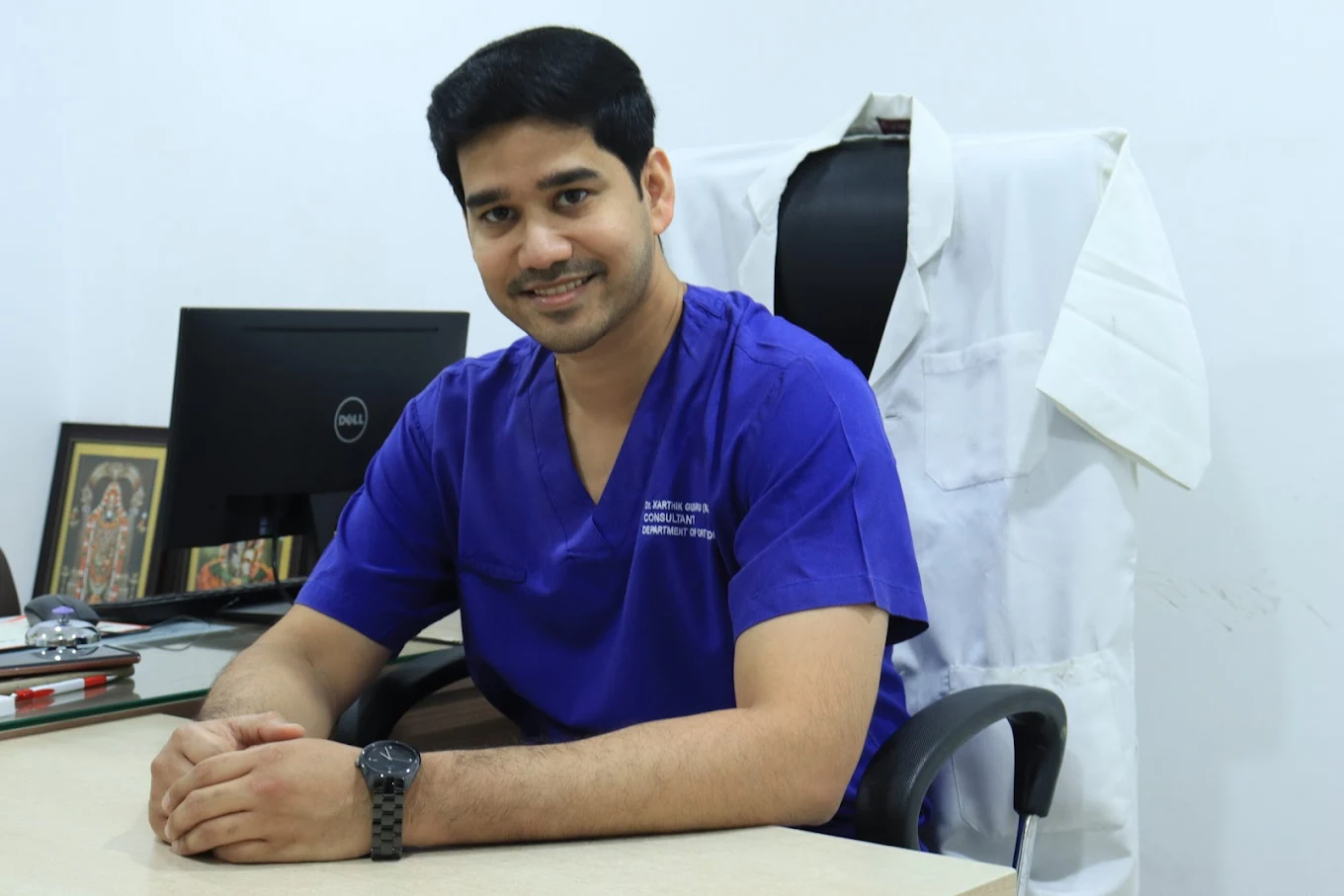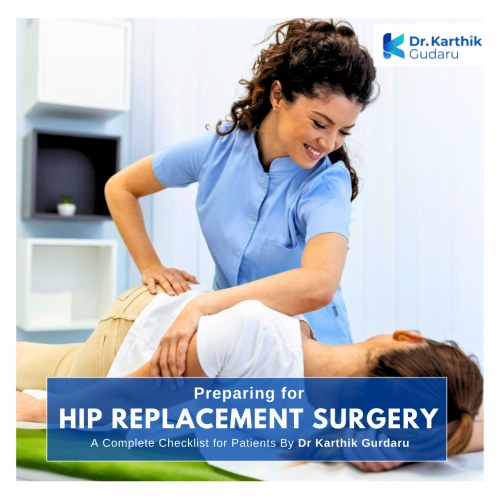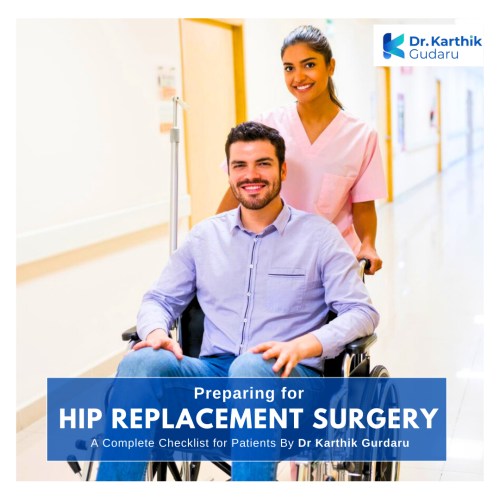Hip replacement surgery can be life-changing for people struggling with constant pain and stiffness. When walking, climbing stairs, or even sitting comfortably becomes difficult, this surgery often offers the best chance to regain mobility and independence. While it’s natural to feel anxious before an operation, being prepared makes a huge difference. A well-planned approach not only helps reduce complications but also speeds up recovery.
In this article, we’ll explain what hip replacement surgery is and share a complete preparation checklist that guides you through the medical, physical, emotional, and practical steps before surgery, as said by Dr Karthik Gudaru, who is the top orthopedic doctor and one of the best surgeons for hip replacement surgery in Hyderabad, Telangana.
What is Hip Replacement Surgery?
Hip replacement, also called hip arthroplasty, is a surgical procedure where the damaged parts of the hip joint are replaced with artificial implants. These implants mimic the function of a healthy hip joint, easing pain and improving mobility. Most people undergo this surgery due to conditions like osteoarthritis, rheumatoid arthritis, fractures, or long-term joint damage.
Modern hip replacement surgeries are highly effective, with most patients experiencing a dramatic improvement in quality of life. However, success depends not only on the operation itself but also on how well you prepare in advance, says Dr Karthik Gudaru, Hyderabad’s leading orthopedic surgeon and hip replacement surgeon
Medical Readiness
Before surgery, your healthcare team will ask you to undergo a series of tests, including blood work, X-rays, and sometimes an ECG, to ensure you’re fit for the procedure. It’s important to share your complete medical history, including all medications, supplements, or herbal remedies. In some cases, your doctor may recommend adjusting or stopping certain medicines like blood thinners. If you have chronic conditions such as diabetes or high blood pressure, work with your doctor to bring them under control before surgery, as this reduces the risk of complications.
Physical Preparation
A stronger body recovers faster. If possible, start doing the gentle exercises recommended by your doctor or physiotherapist. Strengthening the leg muscles, improving flexibility, and even building arm strength (to help you use crutches or a walker) can speed up recovery. Maintaining a balanced diet and healthy weight is equally important, as extra weight can place unnecessary stress on your new hip. Quitting smoking and limiting alcohol also improve healing.
Home Preparation
Your home environment plays a big role in recovery. Take some time to make your space safer and more convenient. Remove loose rugs or clutter that could cause falls. Keep essential items—such as medicines, utensils, and frequently used gadgets—within easy reach. A supportive chair with firm cushions and armrests can make sitting and standing easier. Some patients also benefit from installing a raised toilet seat, grab bars in the bathroom, or using a shower chair during the early weeks after surgery.
Emotional and Lifestyle Preparation
It’s common to feel nervous before surgery, but being mentally prepared can help you feel more in control. Talk openly with your surgeon about what to expect, how long recovery might take, and what activities you’ll be able to resume. Setting realistic expectations helps you stay motivated during rehabilitation. Arranging support in advance—from family members, friends, or a caregiver—will make daily tasks like cooking, bathing, or shopping much easier in the first few weeks.
Hospital Preparation
As the surgery date approaches, pack a small hospital bag with essentials such as loose, comfortable clothes, non-slip footwear, toiletries, and important medical documents. Most hospitals will also give you fasting instructions, so follow your surgeon’s advice carefully. Don’t forget to arrange transportation for the day of admission as well as for follow-up appointments after discharge.
Hip replacement surgery marks the beginning of a new chapter for many patients—a life with less pain and more freedom of movement. The key to a smooth experience lies in preparation. By focusing on your health, strengthening your body, making your home recovery-friendly, and preparing emotionally, you’ll give yourself the best chance for a successful outcome.
Approach the surgery with confidence, knowing that every step you take before the operation is a step toward a more active and fulfilling life after recovery.

Dr. Karthik Gudaru has successfully performed a wide range of advanced orthopedic surgeries, including Total Knee Replacements, Hip and Shoulder Replacements, Elbow Joint Surgeries, and complex pediatric orthopedic procedures. He has a special expertise in robotic and computer-assisted surgeries, sports injury management, and regenerative orthopedics. His key areas of specialization include Robotic Knee Replacement, Shoulder Arthroscopy, Revision Hip Surgery, Spine Surgery, PRP & Stem Cell Therapy, and pediatric conditions like cerebral palsy, congenital deformities, and polio sequelae.


